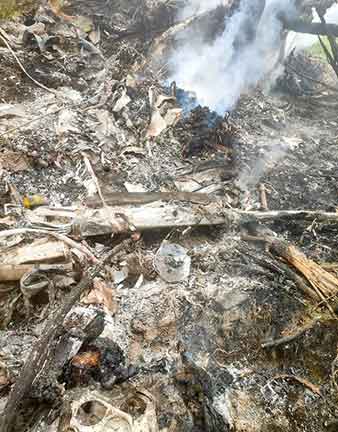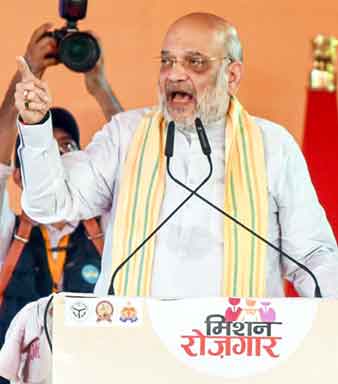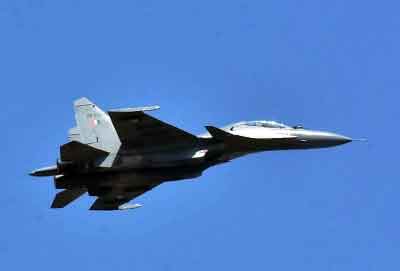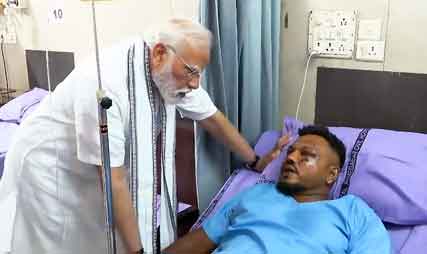The Indian space agency is planning to have five more of the second generation navigation satellites at an outlay of about Rs 1,000 crore as part of its NavIC system, said a senior official.
The Indian Space Research Organisation (ISRO) on Monday morning will be launching the first of its second generation navigation satellites called NVS-01.
"Five more of this version of NVS are planned now. Two more are needed after 2 to 3 years to take care of the end of life of present ones," the official told IANS.
According to him, the cost of these five satellites are less than Rs 1,000 crore.
Interestingly, for the first time, an indigenous rubidium atomic clock developed by ISRO's Space Applications Centre (SAC), Ahmedabad will be flown in NVS-01.
According to the ISRO official, NVS-01 will have one indigenous atomic clock and three procured ones.
Each NaVIC satellite will have three atomic clocks.
Simply put, the NavIC an acronym for Navigation with Indian Constellation (formerly with a long winding name Indian Regional Navigation Satellite System IRNSS) is similar to the GPS (Global Positioning System) of the US, Glonass of Russia and Galileo of Europe as well as China's Beidou.
The NVS-01 will become India's ninth NavIC satellite.
The satellite with a mission life of 12 years is powered by two solar arrays capable of generating power upto 2.4kW and a lithium-ion battery during the eclipse.
NVS series of satellites will sustain and augment the NavIC with enhanced features.
This series has payloads that operate on L1, L5 and S bands thereby widening its services.
The L1 navigation band is popular for providing Position, Navigation and Timing (PNT) services for civilian users and for interoperability with other Global Navigation Satellite System (GNSS) signals, ISRO said.
"In addition to the L1 band, we have a highly secured code for strategic signals in L5 and S bands," the ISRO official remarked.
Till now, eight NavIC satellites have been put into orbit by India viz.,--- IRNSS-1A, IRNSS-1B, IRNSS-1C, IRNSS-1D, IRNSS-1E, IRNSS-1F, IRNSS-1G and IRNSS-1I.
The outlay for the IRNSS/first generation NavIC systems was said to be about Rs 1,420 crore.
According to the ISRO official, out of the eight NavIC satellites in orbit four are functional for navigation services and four others are doing messaging services.
NavIC Satellites
Details Gen 1 Gen 2
Weight 1,420 kg 2,232 kg
Life Span 10 years 12 years
Operational L5 & S L1, L5 & S
Bands
Rocket used PSLV GSLV
Number of Satellites 8 1 (5 more planned)






Civil Aviation Ministry issues strict instructions to DGCA to enforce chopper safety
In the wake of a tragic helicopter crash in the Gaurikund area of Uttarakhand, the Ministry of Civil Aviation on Sunday issued strict instructions to the Directorate General of Civil Aviation (DGCA) to enforce all safety protocols related to chopper operations in hilly and sensitive areas like the Kedarnath valley.
‘Harming Indians will invite punishment’, HM Shah on Op Sindoor
Union Home Minister Amit Shah said on Sunday that through the anti-terror Operation Sindoor, Prime Minister Narendra Modi has sent a strong message across the world that the bloodshed of Indians will invite punishment.
Dassault CEO trashes Pakistan's claims on downing Rafale jets
Dassault Aviation Chairman and CEO Eric Trappier has dismissed as "factually incorrect" Pakistan’s claims about having shot down three Rafale fighter jets of the Indian Air Force during Operation Sindoor.
Tripura BJP stages protest over vandalism at Tagore's ancestral home in B'desh
Ruling BJP in Tripura on Saturday staged state-wide protests along the Bangladesh border, protesting the recent attack and vandalism of the ancestral home of Nobel laureate Rabindranath Tagore in the neighbouring country.
Two new earthworm species unearthed in Tripura
In a major breakthrough for ecological science in Northeast India, two new species of earthworms—Kanchuria tripuraensis and Kanchuria priyasankari—have been formally identified in Tripura.
CM calls for mass awareness on voluntary blood donation
Chief Minister Prof. Dr. Manik Saha today urged to create massive awareness campaigns about the benefits of voluntary blood donation to encourage more people to donate blood.
Tripura has begun experimental soilless hydroponic farming: Minister
The Tripura government has experimentally started the hydroponics method of cultivation without any soil, the state’s agriculture minister Ratan Lal Nath said here on Friday.
Assam Rifles seized cannabis worth Rs 30 lakh from Tripura
In a swift and decisive operation against narcotics smuggling, Assam Rifles, in close coordination with representatives of the Directorate of Revenue Intelligence (DRI), successfully seized approximately 195 kg of marijuana from the general area of Taranagar, Agartala during the early hours of 12 June.